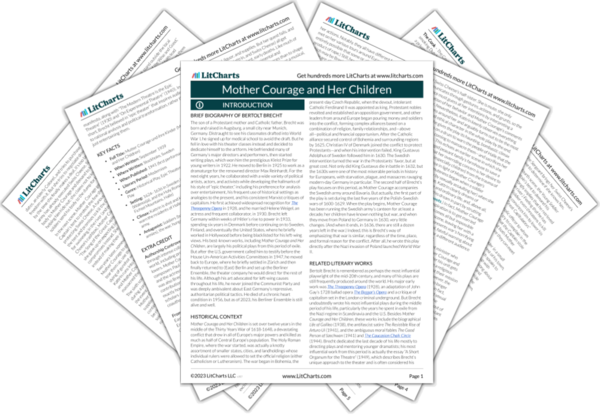Just like her pessimism when the war ends, Mother Courage’s optimism in this section is ironically out of step with reality. She has no idea that Eilif is dead, and tragically, she will never learn, as the Cook can’t work up the courage to tell her. Worse still, the war’s return means that Eilif might not have been breaking the law, after all—and yet, this doesn’t make his actions any less cruel, and nobody, neither he nor his captors, could know the truth.
